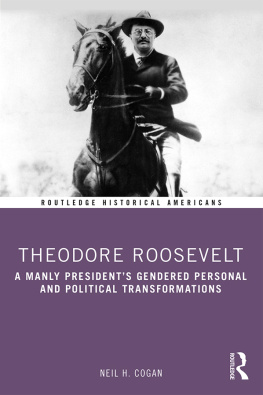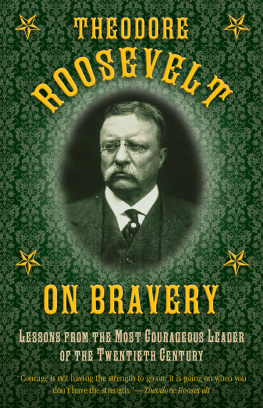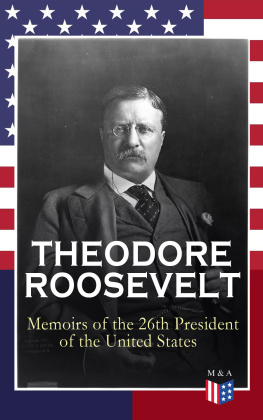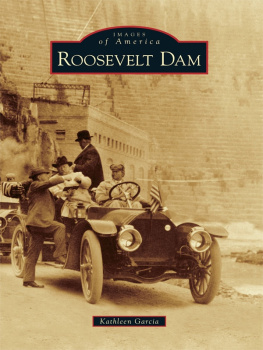Notes
Prologue
. Bryan Burrough, Public Enemies: Americas Greatest Crime Wave and the Birth of the FBI, 193334 (New York: The Penguin Press, 2004); and David Grann, Killers of the Flower Moon: The Osage Murders and the Birth of the FBI (New York: Vintage, 2018).
Chapter 1. Federal Law Enforcement
. Lawrence M. Friedman, Crime and Punishment in American History (New York: Basic Books, 1993), 261.
. David T. Courtwright, Forces of Habit: Drugs and the Making of the Modern World (Cambridge, MA: Harvard University Press, 2001).
. Samuel Walker, Popular Justice: A History of American Criminal Justice, 2nd ed. (New York: Oxford University Press, 1998), 25 .
. Bruce Smith, Rural Crime Control (New York: Institute of Public Administration, Columbia University, 1933).
. Walker, Popular Justice, 25.
. Roger Lane, Policing the City: Boston, 18221855 (New York, NY: Atheneum, 1971), 8.
Press, 1977); Law Enforcement Assistance Association, Two Hundred Years of American Criminal Justice: An LEAA Bicentennial Study, ed. Joseph Foote (Washington, DC: US Department of Justice, 1976).
. Boston City Council, Ordinances and Rules and Orders of the City of Boston: Together with the General and Special Statutes of the Massachusetts Legislature Relating to the City (Boston: Alfred Mudge and Son Printers, 1869), 524.
. Willard M. Oliver and James F. Hilgenberg Jr., A History of Crime and Criminal Justice in America, 2nd ed. (Durham, NC: Carolina Academic Press, 2010), 47.
. Oliver and Hilgenberg, History of Crime.
. Lane, Policing the City; Walker, Popular Justice.
. William Shakespeare, Much Ado about Nothing (New York: Oxford University Press, 1999), 79.
. Benjamin Franklin, The Autobiography of Benjamin Franklin (Mineola, NY: Dover Thrift Editions, [1791] 1996), 81.
. James F. Richardson, Urban Police in the United States (Port Washington, NY: Kennikat Press, 1974), 10.
. Eric H. Monkkonen, Police in Urban America, 18601920 (New York: Cambridge University Press, 1981), 32.
. George Washington Walling, Recollections of a New York Chief of Police: An Official Record of Thirty-Eight Years as Patrolman, Detective, Captain, Inspector and Chief of the New York Police (New York: Caxton Book Concern, 1887), 32.
. Edwin G. Burrows and Mike Wallace, Gotham: A History of New York City to 1898 (New York: Oxford University Press, 1999), 637; Wilbur R. Miller, Cops and Bobbies: Police Authority in New York and London, 18301870, 2nd ed. (Columbus: The Ohio State University Press, 1997), 4.
.
. David R. Johnson, American Law Enforcement: A History (Wheeling, IL: Forum Press, 1981); Madison, Notes on the Debates.
. Sean Condon, Shayss Rebellion: Authority and Distress in Post-Revolutionary America (Baltimore: Johns Hopkins University Press, 2015); Leonard L. Richards, Shayss Rebellion: The American Revolutions Final Battle (Philadelphia: University of Pennsylvania Press, 2002).
Madison, 1946), 33; Broadus Mitchell, Heritage from Hamilton (New York: Columbia University Press, 1957), 26.
. Condon, Shayss Rebellion; Richards, Shayss Rebellion.
. Madison, Notes on the Debates.
.
. Richards, Shayss Rebellion.
. Alexander Hamilton, essay no. 17, in Alexander Hamilton, James Madison, and John Jay, The Federalist: A Collection of Essays, Written in Favour of the New Constitution, 2 vols. (New York: J. and A. McLean, 1787).
. Ibid.
. Gordon S. Wood, Empire of Liberty: A History of the Early Republic, 17891815 (New York: Oxford University Press, 2009), 409.
. Johnson, American Law Enforcement.
. Wood, Empire of Liberty, 409.
. Ibid.
. Ibid., 410.
. Frederick S. Calhoun, The Lawmen: United States Marshals and Their Deputies, 17891989 (New York: Penguin Books, 1991), 13.
. Robert Sabbag, Too Tough to Die: Down and Dangerous with the U. S. Marshals (New York: Simon and Schuster, 1992), 39.
. This act is informally known as the Judiciary Act of 1789.
. Calhoun, Lawmen, 3.
. Ibid.; Sabbag, Too Tough to Die.
. Mark Edward Lender and Garry Wheeler Stone, Fatal Sunday: George Washington, the Monmouth Campaign, and the Politics of Battle (Norman: University of Oklahoma Press, 2016).
.
. Calhoun, Lawmen, 12 and 15.
. John C. Fitzpatrick, ed., The Writings of George Washington from the Original Manuscript Sources, 17451799: Prepared under the Direction of the United States George Washington Bicentennial Commission and Published by Authority of Congress (Washington, DC: US Government Printing Office, 1939), 336.
. Calhoun, Lawmen, 3.
. Calhoun, Lawmen.
. William Hogeland, The Whisky Rebellion: George Washington, Alexander Hamilton, and the Frontier Rebels Who Challenged Americas Newfound Sovereignty (New York: Simon and Schuster, 2010).
. Jeffrey B. Bumgarner, Federal Agents: The Growth of Federal Law Enforcement in America (Westport, CT: Praeger, 2006); Calhoun, Lawmen.
. Calhoun, Lawmen.
. Ibid; Robin Langley Sommer, The History of the U. S. Marshals: The Proud Story of Americas Legendary Lawmen (Philadelphia: Courage Books, 1993).
. U.S. Const. art. I, 2.
.
. Calhoun, Lawmen; Nancy E. Marion and Willard M. Oliver, Federal Law Enforcement Agencies in America (Frederick, MD: Wolters Kluwer Law and Business), 2015; Sommer, History.
.
.
. Jane H. Pease and William H. Pease, The Fugitive Slave Law and Anthony Burns: A Problem in Law Enforcement (New York: Lippincott, 1975).
. Thomas P. Slaughter, Bloody Dawn: The Christiana Riot and Racial Violence in the Antebellum North (New York: Oxford University Press, 1991).
. Pease and Pease, Fugitive Slave Law.
. Calhoun, Lawmen; James Mackay, Allan Pinkerton: The First Private Eye (New York: John Wiley and Sons, Inc., 1996); Frank Morn, The Eye That Never Sleeps: A History of the Pinkerton National Detective Agency (Bloomington: Indiana University Press, 1982).
Chapter 2. Pinkertons Detectives
. Allan Pinkerton, Professional Thieves and the Detective: Containing Numerous Detective Sketches Collected from Private Records (New York: G. W. Dillingham Co., Publishers, 1880), 17 and 19.
. Morn, Eye That Never Sleeps.
. Ibid., 21.
. Pinkerton, Professional Thieves, 24.
. Mackay, Allan Pinkerton, 59.
. Pinkerton, Professional Thieves, 24 and 25.
. Ibid.
. Mackay, Allan Pinkerton, 60.
. Pinkerton, Professional Thieves, 26.
. Ibid., 54.
. Mackay, Allan Pinkerton; Morn, Eye That Never Sleeps.
. As quoted in ibid., 27.
. As quoted in Morn, Eye That Never Sleeps, 19.
. Mackay, Allan Pinkerton; Morn, Eye That Never Sleeps.
. Mackay, Allan Pinkerton, 49 and passim.
. As quoted in ibid., 53.
. As quoted in ibid., 54.
. Ibid.
. Ibid.; Morn, Eye That Never Sleeps.
. As quoted in Mackay, Allan Pinkerton, 68.
. James D. Horan, The Pinkertons: The Detective Dynasty That Made History (New York: Crown Publishers, Inc., 1967); James D. Horan and Howard Swiggett, The Pinkerton Story (New York: G. P. Putnams Sons, 1951); Mackay, Allan Pinkerton.
.
. Morn, Eye That Never Sleeps, 22.
. Mackay, Allan Pinkerton






